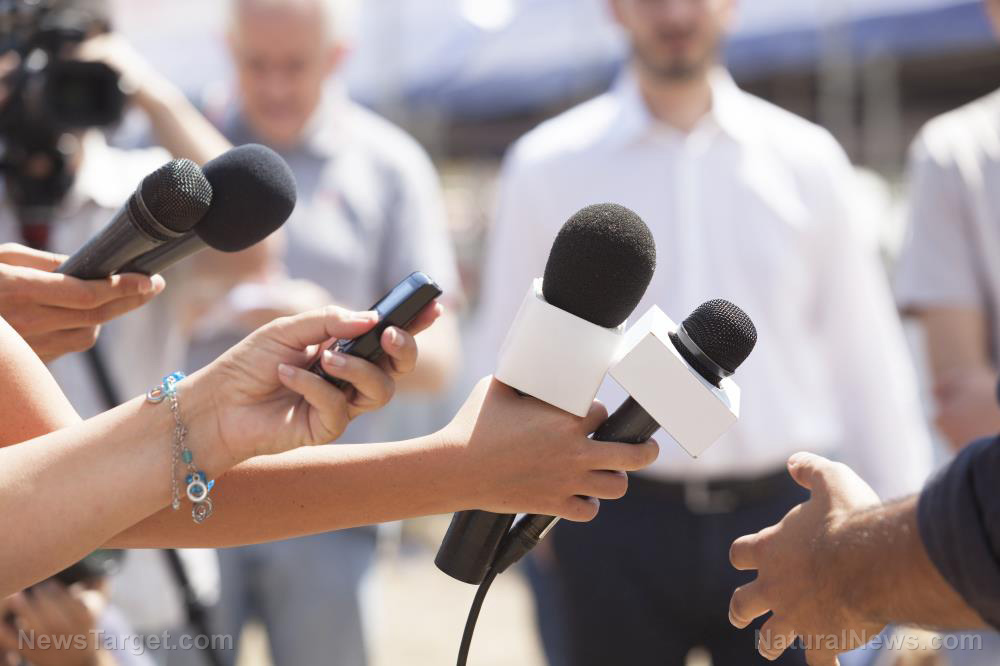"Objectivity has got to go": News leaders call for the end of objective journalism
We
previously discussed the movement in journalism schools to get rid of principles of objectivity in journalism. Advocacy journalism is the new touchstone in the media even as polls show that trust in the media is plummeting. Now, former executive editor for The Washington Post Leonard Downie Jr. and former CBS News President Andrew Heyward have released the results of their
interviews with over 75 media leaders and concluded that objectivity is now considered reactionary and even harmful. Emilio Garcia-Ruiz, editor-in-chief at the San Francisco Chronicle said it plainly: “Objectivity has got to go.”
(Article republished from
JonathanTurley.org)
Notably, while
Bob Woodward and others have finally admitted that the Russian collusion coverage lacked objectivity and resulted in false reporting, media figures are pushing even harder against objectivity as a core value in journalism.
We have been discussing
the rise of advocacy journalism and the rejection of objectivity in journalism schools.
Writers,
editors,
commentators, and
academics have embraced rising calls for censorship and speech controls, including
President-elect Joe Biden and his
key advisers. This movement includes
academics rejecting the very concept of objectivity in journalism in favor of open advocacy.
Columbia Journalism Dean and New Yorker writer Steve Coll decried how the First Amendment right to freedom of speech was being “weaponized” to protect disinformation. In an
interview with
The Stanford Daily, Stanford journalism professor, Ted Glasser, insisted that journalism needed to “free itself from this notion of objectivity to develop a sense of social justice.” He rejected the notion that journalism is based on objectivity and said that he views “journalists as activists because journalism at its best — and indeed history at its best — is all about morality.” Thus, “Journalists need to be overt and candid advocates for social justice, and it’s hard to do that under the constraints of objectivity.”
Lauren Wolfe, the fired freelance editor for the New York Times, has not only gone public to defend her pro-Biden tweet but published a piece titled
“I’m a Biased Journalist and I’m Okay With That.”
Former New York Times writer (and now
Howard University Journalism Professor) Nikole Hannah-Jones is a leading voice for
advocacy journalism.
Indeed, Hannah-Jones has declared “
all journalism is activism.” Her 1619 Project has been challenged as deeply flawed and she has a long
record as a journalist of intolerance, controversial
positions on rioting, and
fostering conspiracy theories. Hannah-Jones would later
help lead the effort at the Times to get rid of an editor and apologize for publishing a column from Sen. Tom Cotten as inaccurate and inflammatory.
Polls show trust in the media at an all-time low with less than 20 percent of citizens trusting television or print media. Yet, reporters and academics continue to destroy the core principles that sustain journalism and ultimately the role of a free press in our society. Notably, writers who have been repeatedly charged with false or misleading columns are some of the greatest advocates for
dropping objectivity in journalism.
Now the leaders of media companies are joining this self-destructive movement. They are not speaking of columnists or cable hosts who routinely share opinions. They are speaking of actual journalists, the people who are relied upon to report the news.
Saying that “Objectivity has got to go” is, of course, liberating. You can dispense with the necessities of neutrality and balance. You can cater to your “base” like columnists and opinion writers. Sharing the opposing view is now dismissed as “bothsidesism.” Done. No need to give credence to opposing views. It is a
familiar reality for those of us in higher education, which has been increasingly intolerant of opposing or dissenting views.
Downie recounts how news leaders today
“believe that pursuing objectivity can lead to false balance or misleading “bothsidesism” in covering stories about race, the treatment of women, LGBTQ+ rights, income inequality, climate change and many other subjects. And, in today’s diversifying newsrooms, they feel it negates many of their own identities, life experiences and cultural contexts, keeping them from pursuing truth in their work.”
There was a time when all journalists shared a common “identity” as professionals who were able to separate their own bias and values from the reporting of the news.
Now, objectivity is virtually synonymous with prejudice. Kathleen Carroll, former executive editor at the Associated Press declared “It’s objective by whose standard? … That standard seems to be White, educated, and fairly wealthy.”
Outlets like NPR are quickly erasing any lines between journalists and advocates.
NPR announced that reporters could participate in activities that advocate for “freedom and dignity of human beings” on social media and in real life.
Downie echoes such views and declares “What we found has convinced us that truth-seeking news media must move beyond whatever ‘objectivity’ once meant to produce more trustworthy news.”
Really? Being less objective will make the news more trustworthy? That does not seem to have worked for years but Downie and others are doubling down like bad gamblers at Vegas.
Indeed, the whole “
Let’s Go Brandon” chant is as much a criticism of the media as it is President Biden.
If there is little difference between the mainstream media and alternative media, the public will continue the trend away from the former. MSM has the most to lose from this movement, but, as individual editors, it remains popular to yield to advocates in their ranks. That is
what the New York Times did when it threw its own editors under the bus to satisfy the mob.
As media outlets struggle to survive, these media leaders are feverishly sawing at the tree branch upon which they sit.
Read more at:
JonathanTurley.org
 Parler
Parler Gab
Gab










